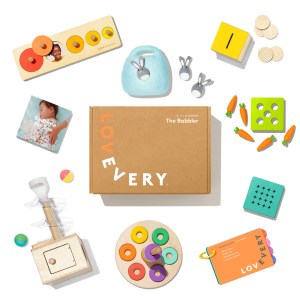The earlier, the better: maths is already developing in your toddler’s brain

Neuroscientist Gillian Starkey studies how maths skills develop in children’s brains—we asked her what she most wanted to share with parents of toddlers.
The takeaway: Starkey believes parents are generally unaware of how ready young toddlers are to learn about numbers. Parents hear plenty about how important reading is for young children, but early introductions to maths matter just as much.
Research shows that incorporating maths concepts early can make an important difference in a child’s ability to succeed in maths later on.
Introducing your toddler to maths can happen in the course of your regular day; it doesn’t have to require anything special. There are many easy ways to pay attention to the maths that’s all around us. The important thing is to use maths as consciously as you use language, so it becomes a regular, familiar part of your child’s day.
Here are some suggestions for integrating maths into your toddler’s life:
Counting every day
Counting helps familiarize your toddler with the concept that there are number words that go along with quantities. “I’m giving you five little crackers—one, two, three, four, five”. Count how many clementines you are buying at the store, or count how many buttons are on your shirt. Count everything!
Early maths experts advocate using number words in sequence as much as possible: instead of saying “here are eight clementines going into the bag”, you would say, “here are one, two, three, four, five, six, seven, eight clementines”.
Your toddler’s learning is also more meaningful when you can physically involve them in the process. Invite your child to help by letting them put each clementine into the bag on their own, or by putting their hands or fingers on each object as you count.
Your toddler might start to do their own “counting” around two years old by reciting number words (mostly 😉) in order and pointing to objects in an attempt to mimic what you do when you count.
They are not yet making the connection between an actual quantity and the corresponding number word they are saying. Later, around age three or four, they will better understand what’s known as “one-to-one correspondence”—one ball goes with the number one, and two balls can be counted “one, two”.
Play comparison games—quantity, size, and shape

Compare quantities with your toddler using words like more, less, equal, and same. Introducing your child to the concepts of none and zero is also helpful: “You have more water than I do. My water is almost gone. Look what happens when I drink it: now my cup is empty. I don’t have any water now”.
You can also compare the size of identical objects, like a big spoon and a little spoon, or the Big and Little Nesting Cups, which are the same colour and ideal for comparison.
Shapes are fun to notice, too. “This ball is round, like that orange. This beanbag is a circle and this one is a triangle”.
Notice patterns

Patterns are fundamentally numerical. If your child is wearing a striped shirt, you can point out the pattern in the stripes—blue, red, blue, red. You can also create patterns together by lining up different kinds of snacks—blueberry, raspberry, blueberry, raspberry.
Music
Music is full of maths: the beat, the rhythm, even the syllables within the lyrics. Dancing to a beat, or even just moving their body, can help your toddler find order and notice patterns. Early maths concepts are all about patterns and sequences. Try doing simple clapping patterns (first one clap to help them understand the copy-the-clap game, then two in a row to make a beat, etc) and see if your toddler can try to match them.
Remember that maths at this age is all about patterns, sequences, routines, observations, and comparisons—these are the precursors to what’s known as number sense. Precise counting—and understanding what numbers actually represent—comes later.

The Play Kits
The Play Kits by Lovevery are thoroughly tested, baby safe, eco-friendly and Montessori inspired. Give your child the best start with our stage-based play toy subscription boxes.
Learn moreKeep reading

19 - 21 Months
22 - 24 Months
25 - 27 Months
28 - 30 Months
31 - 33 Months
34 - 36 Months
What kind of chores are right for my child?
Children as young as 18 months can start taking on regular household responsibilities. These will be simple and straightforward, like wiping up spills or helping set the table, and will require modeling and patience from you.


19 - 21 Months
Welcome to The Realist Play Kit for months 19-21
Watch Lovevery CEO Jessica Rolph introduce the Realist Play Kit for months 19 to 11 of your toddler's life.


19 - 21 Months
Introducing the Montessori Animal Match game to your toddler
Lovevery CEO Jessica Rolph and Montessori Expert Jody Malterre demonstrate how the Montessori Animal Match game helps toddlers link 2D images with 3D figurines.
